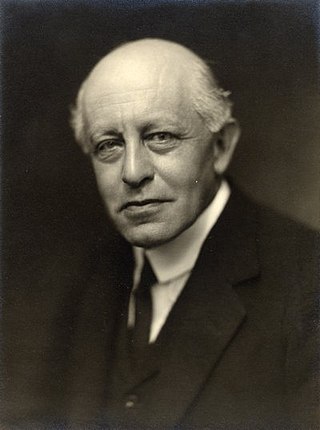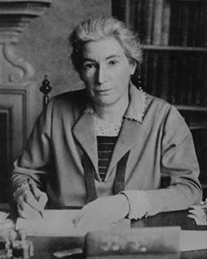Related Research Articles
Experimental psychology refers to work done by those who apply experimental methods to psychological study and the underlying processes. Experimental psychologists employ human participants and animal subjects to study a great many topics, including sensation, perception, memory, cognition, learning, motivation, emotion; developmental processes, social psychology, and the neural substrates of all of these.
Sir Frederic Charles Bartlett FRS was a British psychologist and the first professor of experimental psychology at the University of Cambridge. He was one of the forerunners of cognitive psychology as well as cultural psychology. Bartlett considered most of his own work on cognitive psychology to be a study in social psychology, but he was also interested in anthropology, moral science, philosophy, and sociology. Bartlett proudly referred to himself as "a Cambridge psychologist" because while he was at the University of Cambridge, settling for one type of psychology was not an option.
The British Psychological Society (BPS) is a representative body for psychologists and psychology in the United Kingdom.

Charles Samuel Myers, CBE, FRS was an English physician who worked as a psychologist. Although he did not invent the term, his first academic paper, published by The Lancet in 1915, concerned shell shock. In 1921 he was co-founder of the National Institute of Industrial Psychology.
William Edmund Hick was a British psychologist, who was a pioneer in the new sciences of experimental psychology and ergonomics in the mid-20th century.
Psychology is defined as "the scientific study of behavior and mental processes". Philosophical interest in the human mind and behavior dates back to the ancient civilizations of Egypt, Persia, Greece, China, and India.
Arthur Rex Knight, known as Rex Knight, was born in Wilcannia, New South Wales in Australia. He later emigrated to the United Kingdom and became a psychologist.

Miles Ronald Cole Hewstone is a British social psychologist who is well known for his work on social relations.
Oliver Louis Zangwill FRS was a British neuropsychologist. He was Professor of Experimental Psychology, University of Cambridge, 1952–1981, and then professor emeritus. His father was author Israel Zangwill; his mother was author Edith Ayrton, whose parents were physicist William Edward Ayrton and physician Matilda Chaplin. He was elected a Fellow of the Royal Society in 1977.

The City of Norwich School, more commonly known as CNS, is a coeducational secondary school and sixth form with academy status in Norwich, England.
Psychological research refers to research that psychologists conduct for systematic study and for analysis of the experiences and behaviors of individuals or groups. Their research can have educational, occupational and clinical applications.

Beatrice Edgell was a British psychologist, researcher and university teacher. She taught at Bedford College in the University of London from 1897 to 1933. She was the first British woman to earn a PhD in psychology and the first British woman to be named a professor of psychology. She was also the first female president of the British Psychological Society, the Aristotelian Society, the Mind Association and the Psychological Division of the British Association for the Advancement of Science.
May Smith OBE was a British Industrial psychologist from Hulme, Manchester. She received a bachelor's degree in 1903 and later received a Doctor of Science degree in 1930. Throughout her career, she taught at colleges as well as performing important research in the field of industrial psychology. She subjected herself to her own trials in her research on fatigue. She worked alongside other researchers to find the effects of alcohol and opium on efficiency as well as research on telegraphist's cramp. She was an investigator at the Industrial Health Research Board from 1920 to 1944. She held several positions on the executive of the British Psychological Society.

The UCL Division of Psychology and Language Sciences is a Division within the Faculty of Brain Sciences of University College London (UCL) and is located in London, United Kingdom. The Division offers teaching and training and undertakes research in psychology and communication and allied clinical and basic science. It is the largest university psychology department in England.
Andrew William Young is a British cognitive neuropsychologist whose primary research has been on face perception.
Alex Rodger (1907–1982) was a British occupational psychologist.
Arthur Summerfield (1923–2005) was a British psychologist.
Harry Kay (1919–2005) was a British psychologist and academic administrator.
Harry M.B. Hurwitz was a Canadian psychologist who specialised in the field of behavior analysis.
Magdalen Dorothea Vernon (1901–1991) was a British experimental psychologist who published her research widely and trained many PhD students. She was the first woman to head the then Department of Psychology at the University of Reading, England.
References
- 1 2 "Professor Alec Mace". The Times. London, England. 9 June 1971. p. 16.
- ↑ MACE, Cecil Alec’, Who Was Who, A & C Black, an imprint of Bloomsbury Publishing plc, 1920–2015; online edn, Oxford University Press, 2014; online edn, April 2014 accessed 23 Dec 2014
- ↑ Shimemin, Sylvia (1971). "C.A. Mace 1894-1971". Occupational Psychology. 45 (3/4): 281–282.
- ↑ Carson, Paula Phillips; Carson, Kerry D.; Heady, Ronald B. (1994). "Cecil alec mace: The man who discovered goal-setting". International Journal of Public Administration. 17 (9): 1679–1708. doi:10.1080/01900699408524960.
- ↑ Mace, C.A. (1927). Sibylla; or the Revival of Prophecy. Kegen Paul.
- ↑ Mace, C.A. (1969). The Psychology of Study . Penguin.